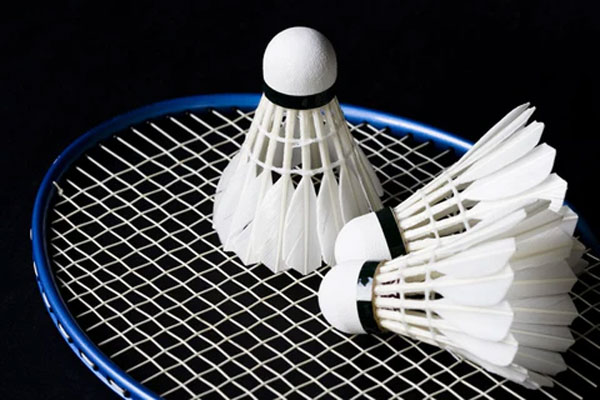Daijiworld Media Network – New Delhi
New Delhi, Aug 19: A surprising shift in eating habits in China is ruffling feathers in the global badminton world — quite literally. A growing preference for pork over duck has disrupted poultry farming in China, triggering a severe shortage of feathers used in shuttlecock manufacturing. The result? Soaring shuttle prices, strained supplies, and a looming crisis in one of the world’s most popular sports.
Over the past year, the price of high-quality shuttles has nearly tripled — from Rs 1,200 per tube in 2023 to over Rs 3,000 now — excluding 12% GST and import duties. Badminton players and coaches across India are sounding the alarm, as the rising costs threaten the sport's accessibility.

A report by the French sports daily L’Équipe recently highlighted that the decline in duck farming, due to China's growing appetite for pork, has directly impacted the global feather supply chain. With most shuttlecocks still manufactured using duck or goose feathers, the effects have been felt worldwide.
“We can't allow an entire sport to depend on what one country chooses to eat,” said Pullela Gopichand, chief coach of the Indian national badminton team. “First it was bird flu. Now it’s feather shortage. Either way, badminton is paying the price.”
Gopichand, who runs one of India’s top academies in Hyderabad, said their current shuttle stock would barely last two weeks. “The demand for shuttles has exploded with the growth of the sport. It’s not that birds aren’t being raised — it’s that players are increasing. If we don't move towards synthetic or lab-made alternatives soon, the crisis will worsen. I believe the next five years will bring breakthroughs,” he added.
He also called on premier institutions like IITs to develop alternatives. “We don’t need to eat ducks like the Chinese. We need scientific solutions. Let’s innovate.”
Sanjay Mishra, secretary of the Badminton Association of India, echoed the concerns: “Feather-based shuttles offer unmatched control, but global demand is unsustainable. The issue was even raised in the recent BWF meeting. Alternatives must be prioritised.”
The world’s largest shuttle manufacturers — especially in China — are struggling to meet demand. Although some production exists in India, primarily in Kerala and West Bengal, it remains small-scale and insufficient.
Karan, managing director of Yonex India, warned that the sport could become elitist if the price trend continues. “Feather supply is down, demand is up, and prices have skyrocketed. At this rate, players from modest backgrounds may be forced to drop out. That’s a huge concern.”
Yonex has committed to replenishing national camp supplies by August 20, but experts agree that’s a short-term fix. Without synthetic breakthroughs, the feather crisis may clip the wings of badminton's growth — both in India and globally.